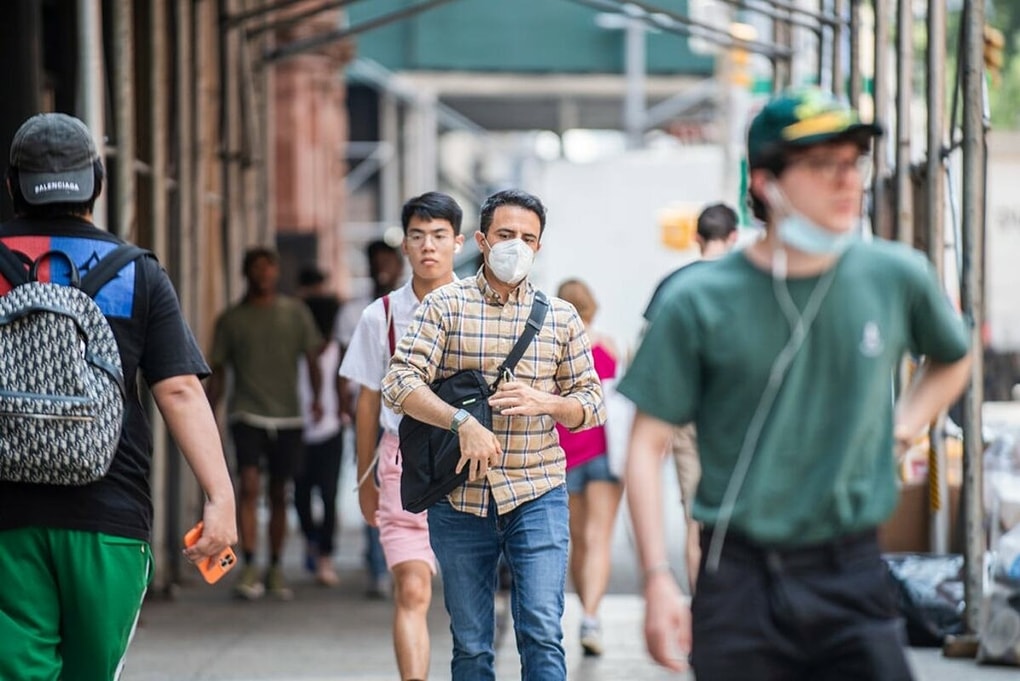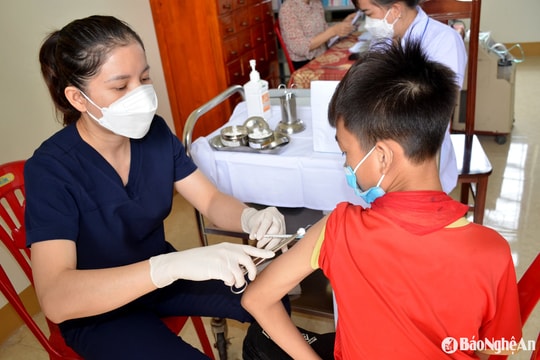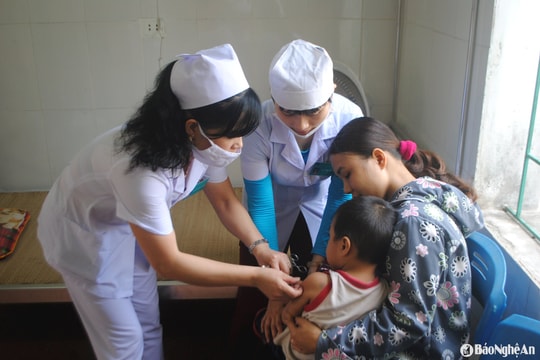How are the symptoms of Delta variant infection different from before?
People who have been vaccinated and infected with the Delta variant have mild symptoms, similar to the common cold, but in people who have not been vaccinated, the disease progresses more seriously.
Early in the pandemic, experts noted signs of nCoV infection including loss of taste and smell, fever, cough, shortness of breath and fatigue. Now, more than a year later, with the Delta variant raging, the question is whether the symptoms have changed or not?
There is currently little data to explain this puzzle, and much remains to be learned.
In the US, unvaccinated people make up the majority of those hospitalized with Covid-19. They are more likely to develop severe symptoms, such asshortness of breath, persistent pain or tightness in the chest. In areas with low vaccine coverage, like Louisiana, Texas, and Arkansas, unvaccinated children and young adults are hospitalized more than at other times during the pandemic. Researchers are not sure whether Delta is causing severe symptoms, or whether the U.S. is experiencing a wave of Covid-19 in children that is leading to more hospitalizations.
The Delta variant is almost twice as contagious as the previous one, spreading as easily as chickenpox. It replicates rapidly in the body, with people carrying large amounts of the virus in their noses and throats.
Dr. Andrew T. Chan, an epidemiologist and physician at Massachusetts General Hospital, has tracked the symptoms of millions of people in the UK, US and Sweden through an app. In a study manuscript, he said the vaccine effectively protects users against the Delta variant. Phenomenonbreakthrough nCoV infection(Covid-19 infection after two doses of vaccine) is rare and tends to cause milder symptoms over a shorter period of time.
 |
| Pedestrians on the sidewalk in Manhattan, USA, July 2021. Photo: NY Times |
For vaccinated adults, "symptoms similar to the common cold“There are still many patients coughing, but there is a higher rate of runny nose and sneezing,” Dr. Chan said. Some people have headaches and sore throats.Fever, loss of taste and smellrecorded at lower levels.
Symptoms were generally milder during the Delta season in the UK, which started in late spring and coincided with the mass vaccination programme, according to Dr Chan.
In New York, where 67% of adults are fully vaccinated, pediatricians are seeing children with symptoms similar to those seen early in the pandemic. Severe cases are more common in unvaccinated adolescents, especially those with underlying conditions such as diabetes or obesity. Toddlers and teenagers can also become seriously ill after contracting Covid-19, said Dr. Sallie Permar, a pediatrician at New York-Presbyterian Hospital and Weill Cornell Medical College. But doctors are sometimes unclear why some children have more severe symptoms than others.
Fever, cough, fatigue, headache and sore throatare still the "classic manifestations" in children with symptomatic Covid-19, Permar added.
Dr. Adam Ratner, director of pediatric infectious diseases at Hassenfeld Children's Hospital, recommends that parents get their children tested if they have any symptoms, including digestive problems.
Experts say testing is also important for adults, even if they have been vaccinated and have mild symptoms. The Centers for Disease Control and Prevention (CDC) said in August that vaccinated people can still transmit the virus.
"This is a new variant. We're still learning. Be cautious, be extremely careful, and get tested," said Dr. Mark Mulligan, director of the NYU Langone Center for Immunization.




.jpg)



